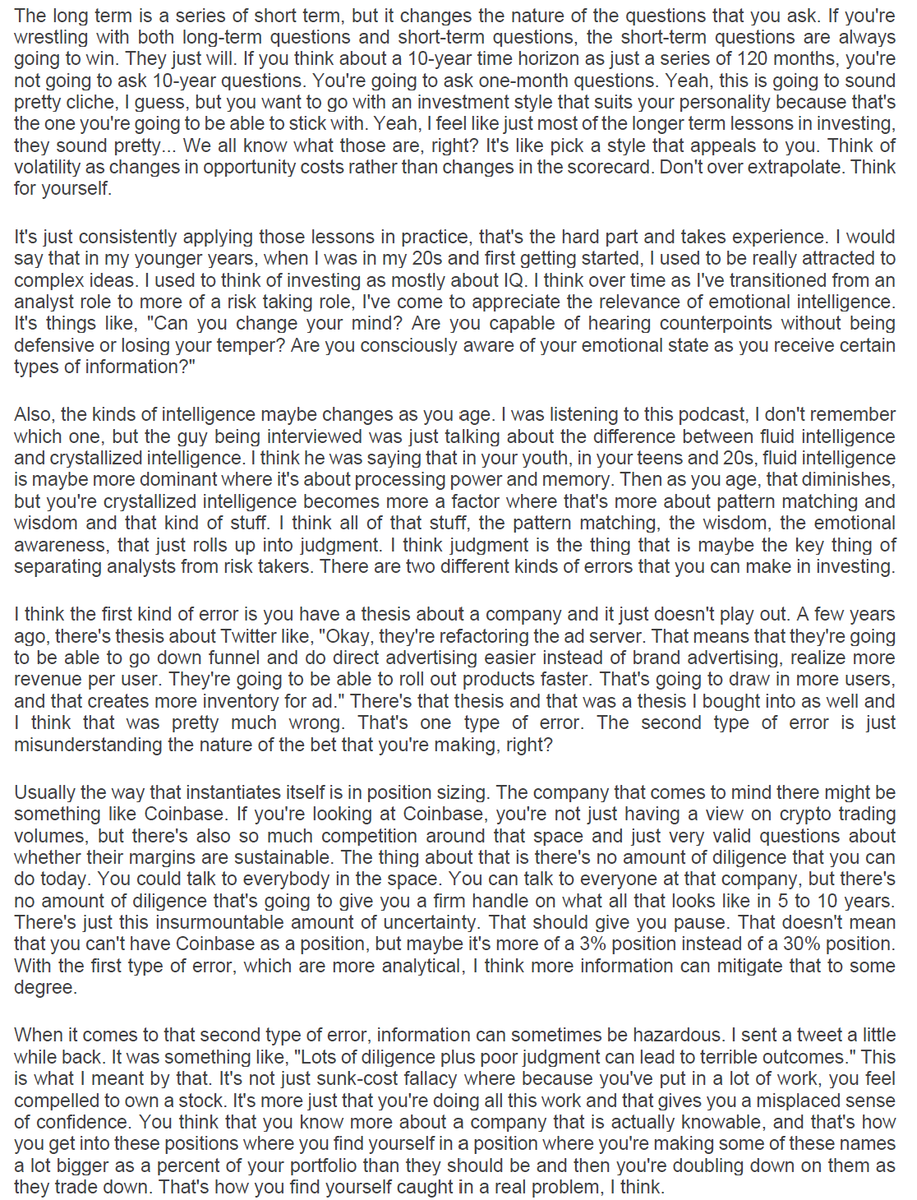
Some wonderful bits from @scuttleblurb
"If you're wrestling with both long-term questions and short-term questions, the short-term questions are always going to win."
this one in particular is worth reading in full.
"If you're wrestling with both long-term questions and short-term questions, the short-term questions are always going to win."
this one in particular is worth reading in full.

"we often think about a large addressable market as this unalloyed positive thing. In the wrong hands, I feel like the bigger the TAM, the more rope you can give a company to hang itself, right?...
...Because the way that you get yourself in the position where you've got this big unsustainable debt load and huge cash burn and negative profits, is that you're able to justify that by saying, "Well, we only have 2% of the TAM."
"I think all good investing is qualitative at the end of the day because there needs to be some kind of theory or basis backing the numbers that go into this spreadsheet that people use to come up with their valuations."
All quotes are from this podcast:
libertyrpf.com/p/interview-wi…
libertyrpf.com/p/interview-wi…
• • •
Missing some Tweet in this thread? You can try to
force a refresh












